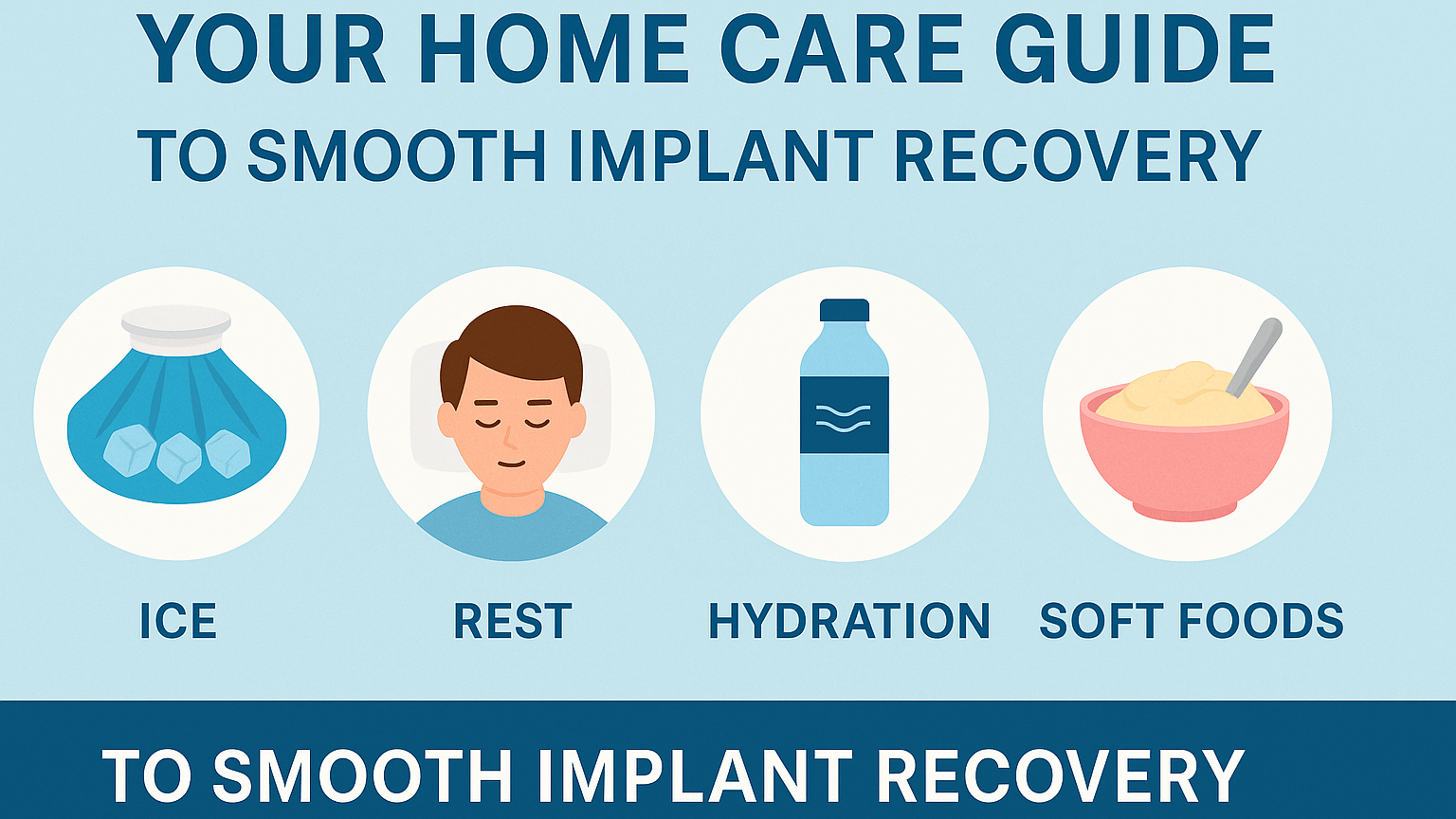Healing After Dental Implants: What to Expect and How to Speed Recovery
&srotate=0)
Dental implants are one of the best investments in your long-term oral health—but the healing process is just as important as the surgery itself. Knowing what to expect can reduce stress, minimize complications, and help you get the most out of your new smile. Expect some swelling, minor bleeding, and mild discomfort. These are all normal. Apply cold compresses and follow all post-op instructions carefully. Healing After Dental Implants: What to Expect and How to Speed Recovery
Immediate Post-Op: The First 48 Hours
First Week: Transitioning
Swelling should peak by day 2 or 3 and subside by day 5. Some bruising may occur. Most patients return to work in 1–3 days, especially when sedation is used.
2–6 Weeks: Early Osseointegration
This is the phase where the implant fuses to your jawbone. You may not “feel” this happening, but it’s critical. Avoid pressure or chewing directly on the implant site.
3–6 Months: Final Healing
Once osseointegration is complete, your implant is ready for its crown or restoration. Healing time varies based on:
- Bone quality and density
- Number of implants placed
- Use of bone grafts or sinus lifts
- Patient health and habits (e.g., smoking)
Tips to Heal Faster
- Avoid smoking and alcohol, both of which delay healing
- Stay hydrated and eat vitamin-rich, soft foods
- Maintain gentle oral hygiene around the implant area
- Attend all follow-up visits for monitoring
What If You Experience Pain or Complications?
Minor soreness is normal, but severe pain, pus, or implant movement may signal a problem. Contact Zensmiles immediately if anything feels off—we’re here to help.
Why Zensmiles Is Different
Dr. Mohit Sharda is not just a general dentist—he’s a residency-trained dentist anesthesiologist with advanced training in sedation and implantology. We perform every stage of implant placement in-house, from imaging and surgery to sedation and restoration. That means:
- No referrals or multiple locations
- Complete comfort with IV sedation if needed
- Precise treatment with CBCT 3D scanning and digital planning
Want a smooth, comfortable dental implant experience?
Schedule Your Implant Consultation Today